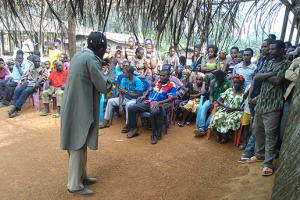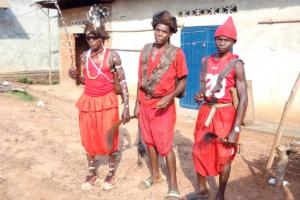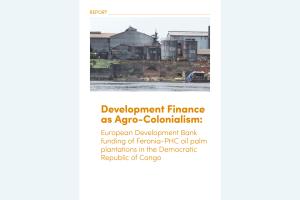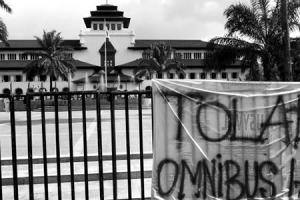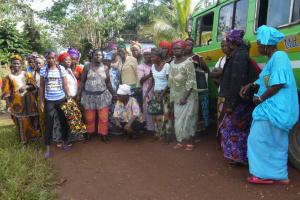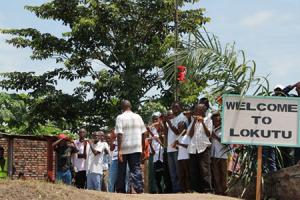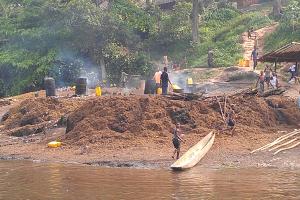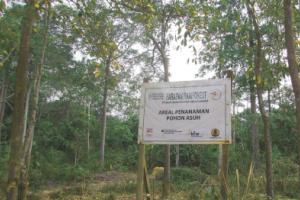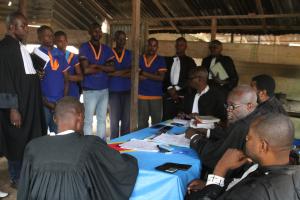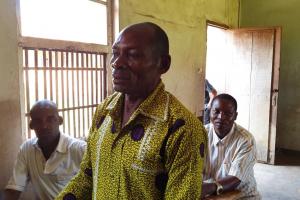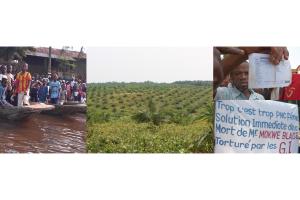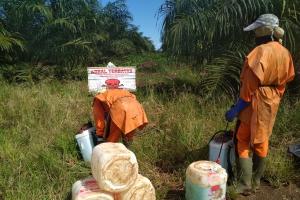Palm Oil
The oil palm tree is native to West Africa. It is an important tree for forest-dependent communities, their cultures and their economies. However, large-scale oil palm monocultures for industrial production (oil and agrofuels) have been driving deforestation and land grabbing in Southeast Asia. More recently, oil palm monocultures are also driving destruction in Africa and Latin America.
Communities in West and Central Africa are facing the impacts of industrial oil palm plantations. With the false promise of bringing ‘development’, corporations, backed up with government support, have been granted millions of hectares of land for this expansion.
RIAO-RDC and international NGOs calls for the immediate release of community leaders and villagers from the communities of Mwingi, Bolesa and Yanongo who were arrested after a peaceful protest against the palm oil company PHC. An urgent action alert is open to sign-ons.
The report details abuses faced by communities affected by industrial oil palm plantations managed by the Congolese company Plantations et Huileries du Congo (PHC).
The government of Indonesia endorsed the criticized Omnibus Law by saying that it is “crucial to attract investment and ultimately create jobs.” The Law is a direct attack on the territories and communities resisting the increasing destruction that has been ongoing for decades in Indonesia. (Available in Indonesian).
European development banks have financed a plantation company in DRC that is built on injustice and violence dating back to a colonial-era land grab. When the company went bankrupt in 2020, the banks chose to uphold the plantation model.
More than 100 years ago, lands were stolen from communities in DR Congo for industrial oil palm production. Since 2009, those lands are under control of the company FERONIA.
Back in 2004, conservation NGOs and the Indonesian Ministry of Forestry pioneered with a model called Ecosystem Restoration Concessions. This article takes a closer look at this model in the context of new and old threats to forests, and the global push for “forest restoration”. (Available in Indonesian).
Groups call for the immediate release of villagers in the DR Congo imprisoned for over 5 months on false charges related to a land conflict with the Canadian oil palm plantation company Feronia Inc. Sign the letter!!!
Community leaders and traditional chiefs in areas affected by the plantations of Canadian company PHC-Feronia in the Democratic Republic of Congo (DRC) continue to suffer all kinds of massive human rights violations.
Exploitative working conditions in the oil palm plantations’ industry in Indonesia are persistent and the main victims are mostly women. Although this situation is often overlooked, the production process of the world’s largest producer of palm oil is strongly influenced by its existence.
